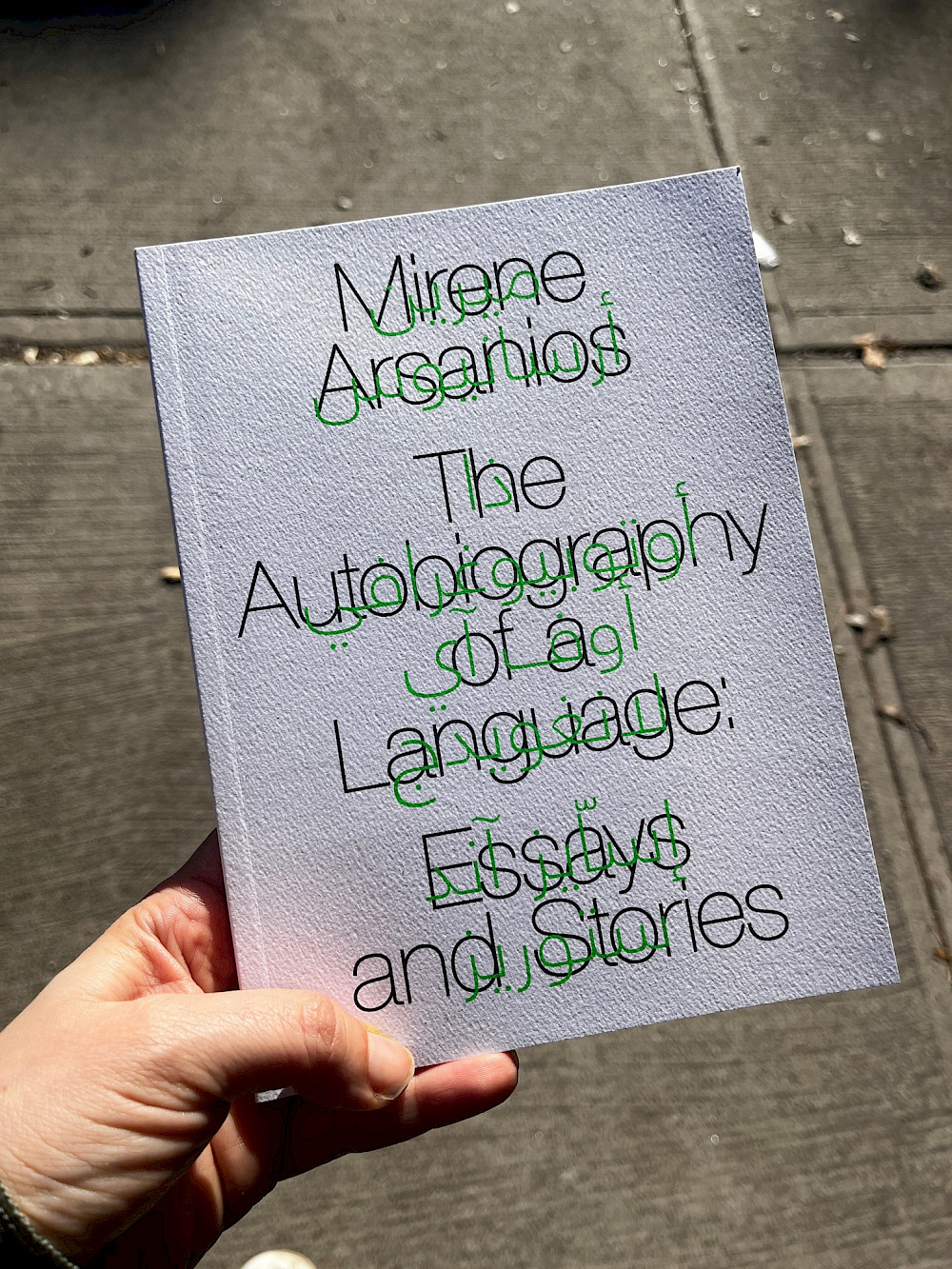This year's festival brochure features a selection of texts from Notes on Mother Tongues and The Autobiography of a Language by Lebanese writer Mirene Arsanios. In the pamphlet Notes on Mother Tongues, Arsanios examines the historical and personal circumstances that led to the loss of her ‘mother tongue’, and meditates on the relationships between mother tongues, motherhood and colonialism. Language is presented as a field shaped by diasporic histories, class relations and fractured family legacies. In the collection The Autobiography of a Language, Arsanios collects candid stories and essays that reflect on the transactional nature of care, the relationship between language and sex, the space between mourning and birth, and what grammar cannot contain.
I speak of my language in the third person because knowing my language intimately means accepting the inherent split that exists between us, a dialectic of embodiment and estrangement that defines our relationship. My language is wary of my efforts; she doesn’t fully trust my ability to come up with a language that convincingly demonstrates that certain platitudes such as “everything is connected” are in fact true. I too have misgivings about my language; she can turn against me at any moment and deprive me of words. She doesn’t know that at night, while she is asleep, I am awake, striving to come up with a syntax that can hold in a single sentence antithetical histories of ownership and dispossession, sentences in which the victim is also the perpetrator.
(from Notes on Mother Tongues, Ugly Duckling Press, 2020)
Mirene Arsanios is also coming to Brussels to give a talk as part of our discursive programme The Politics of Language.
More info: www.mirenearsanios.com

